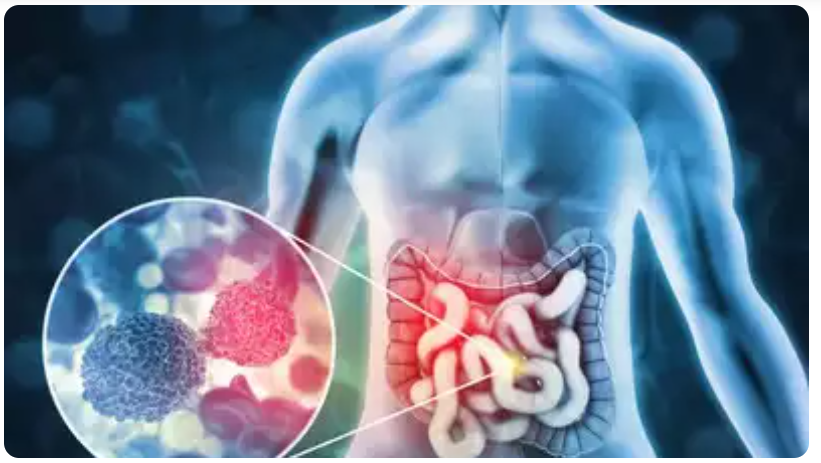Colorectal Cancer: Colorectal cancer, encompassing cancers of the colon and rectum, is a significant global health concern. Despite its high treatability when detected early, it continues to rank among the top causes of cancer-related deaths. This blog aims to offer a comprehensive overview of colorectal cancer, covering its causes, symptoms, prevention, and treatment options.
What is Colorectal Cancer?
Colorectal cancer begins in the colon or the rectum, parts of the large intestine, and the digestive system’s lower section. It usually starts as small, benign clumps of cells called polyps, which over time can become cancerous.

Causes and Risk Factors:
The exact cause of colorectal cancer is unknown, but certain factors increase the risk:
- Age: The risk increases with age, particularly after 50.
- Personal or Family History: A history of colorectal cancer or polyps in the family raises the risk.
- Lifestyle Factors: Poor diet, a sedentary lifestyle, obesity, smoking, and heavy alcohol use contribute to the risk.
- Certain Diseases: Conditions like inflammatory bowel disease (IBD) can increase risk.
Symptoms:
Colorectal cancer might not cause symptoms initially, but as it progresses, symptoms may include:
- Changes in Bowel Habits: Persistent changes, like diarrhea or constipation.
- Blood in Stool: A common sign, often indicating bleeding in the digestive tract.
- Abdominal Discomfort: Cramps, gas, or pain.
- Unexplained Weight Loss: Often occurs with more advanced stages.
- Fatigue: A general feeling of weakness or tiredness.
Screening and Diagnosis:
Early detection through screening is key to successfully treating colorectal cancer. Recommended screening methods include:
- Colonoscopy: The most comprehensive screening tool.
- Stool Tests: Checking for blood or certain DNA in the stool.
- Imaging Tests: Like CT colonography for a detailed view of the colon.
Diagnosis often involves a combination of these tests, along with a biopsy to confirm cancer.
Prevention:
While not all colorectal cancers can be prevented, certain measures can lower the risk:
- Diet and Exercise: A balanced diet rich in fruits, vegetables, and whole grains, along with regular exercise, can reduce risk.
- Weight Management: Maintaining a healthy weight is crucial.
- Limit Alcohol and Quit Smoking: Reducing alcohol consumption and quitting smoking can lower risk.
- Regular Screening: Especially important for those with a family history or other risk factors.
Treatment Options:
Treatment depends on the stage of cancer and may include:
- Surgery: To remove the cancerous part of the colon or rectum.
- Chemotherapy: Often used after surgery to kill any remaining cancer cells.
- Radiation Therapy: Commonly used for rectal cancer, sometimes along with chemotherapy.
- Targeted Therapy and Immunotherapy: For advanced or recurrent colorectal cancer.
Living with Colorectal Cancer:
Being diagnosed with colorectal cancer can be overwhelming. However, with advancements in medical science, many patients lead healthy lives post-treatment. Support from healthcare professionals, family, and support groups plays a crucial role in coping with the disease.
Conclusion:
Colorectal cancer, though serious, is preventable and treatable, especially when detected early. Understanding the risk factors, symptoms, and the importance of regular screening can save lives. If you or a loved one is facing colorectal cancer, remember that medical advancements and support are on your side. With the right approach, colorectal cancer can be managed, allowing individuals to continue leading fulfilling lives.

